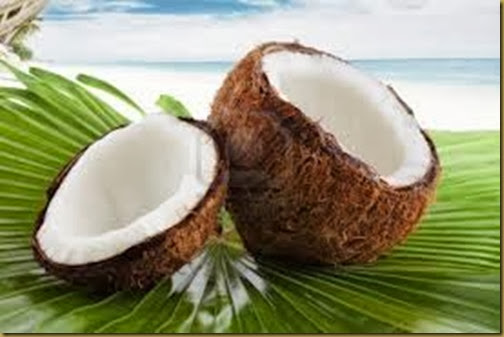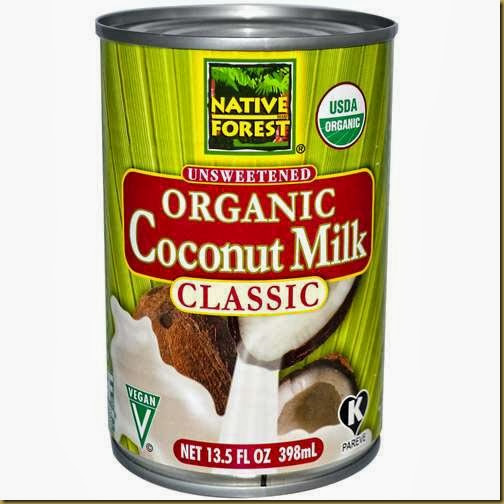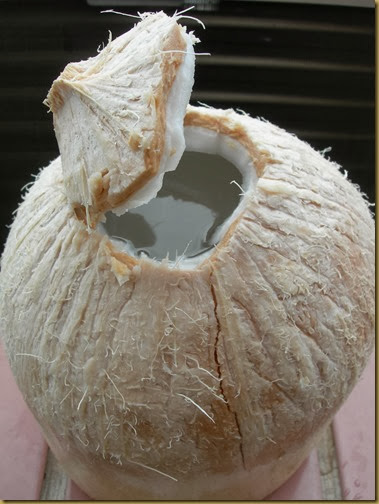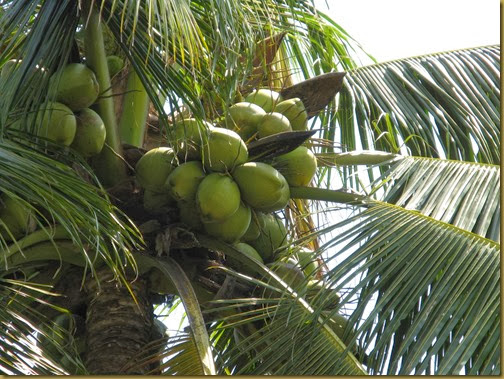All things coconut have become quite the buzz over the past year and they continue to trend. From skin care to cleaning products, nutrition claims and recipes; it seems we can use coconut for just about everything!
I tend to be quite the skeptic when any product — food or not — seems to claim too much. So, what is the hype all about? Should you buy a gallon of coconut oil and use it for everything? Should you ditch water for coconut water? Milk for coconut milk? What about coconut sugar, shreds and manna? The list goes on.
Think of this as your coconut cheat sheet — I’ll lay out all of the facts and you can decide for yourself whether coconut is worth the hype. Let’s start with the basics.
Is coconut good for you? With all the hype surrounding this fruit, (actually considered a drupe or a fleshy fruit, having a single hard stone that encloses a seed) scientists are busy researching its benefits and risks. Preliminary studies have shown some health benefits such as increases in HDL (good) cholesterol, and anti-microbial and anti-bacterial properties.
Doesn’t coconut have saturated fat? Yes, coconut contains saturated fat but it is plant based and your body uses the fat in coconut oil differently than it uses the saturated fats found in animal products. So unlike animal-based fats, coconut oil is cholesterol-free. Additionally, the primary saturated fatty acid found in coconut oil — lauric acid — is a medium-chained fatty acid, compared to the long-chain fatty acids found in animal products. Medium-chained fatty acids are easier to digest, absorb and use for energy. Other studies have found consumption of coconut oil may improve HDL cholesterol levels, the “good” cholesterol.
What types of coconut products are available? There are a variety of coconut products available including coconut oil, coconut manna (pureed coconut meat), coconut sugar, coconut water, coconut milk and even coconut yogurt and ice creams.
Do the health benefits of coconut oil apply to all of the manufactured forms of coconut available? No. Most of the preliminary research has been surrounding coconut oil and coconut water. Minimally processed, unsweetened coconut products like shreds and manna will contain coconut oil in lesser quantities than the oil itself but are still considered to have some health benefits. Often, when an ingredient is highly processed we lose some of the health benefits, especially when a good amount of sugar is added to the final product. This is important to remember before diving into a bowl of sugar laden coconut ice cream or yogurt.
Is coconut milk a suitable milk alternative? Coconut milk is the liquid that comes from the coconut meat and can be a dairy substitute as it has a similar texture, flavor and does not contain lactose or dairy proteins, which makes it suitable for people with dairy allergies and intolerances. Most coconut milk alternatives are fortified with calcium, as coconut does not contain as much calcium as diary on its own. Coconut (especially the meat) is also rich in several nutrients like copper, calcium, iron, manganese, magnesium, zinc and the B-complex vitamins such as folates, riboflavin, niacin, thiamin, and pyridoxine.
What is the difference between canned and boxed coconut milk? Both contain “coconut milk” but the boxed versions contain more water and are consequently lower in fat and calories. Canned coconut milk is often a clear liquid — while the thicker, white liquid is often referred to as coconut cream.
What is coconut water? Coconut water is the liquid found in young coconuts. It is rich in disease fighting antioxidants and a good source of potassium. Due to the high potassium content, coconut water can be used for rehydration and electrolyte repletion but should not replace water.
Why do people cook with coconut oil? Coconut oil has a high smoke point, which is the temperature at which it begins to produce smoke. The smoke indicates that the oil is beginning to degrade and produce free radicals, which can be damaging to the body. For high heat cooking, you should use cooking oil with a higher smoke point.
Can I use coconut oil instead of butter in baking? Like butter, coconut oil is solid at room temperature and thus can easily replace butter in baked goods. It is recommended to us a 3:4 ration of coconut oil to butter when using it as a baking substitute.
Is coconut sugar a healthier alternative to cane sugar? Coconut sugar is less refined and contains more nutrients than cane sugar. It is also thought to have a lower glycemic index which means better blood sugar control comparatively. Calorie for calorie, coconut sugar and cane sugar are very similar, clocking in at around 15 calories per teaspoon. However, all added sugars are discretionary calories and should be consumed in moderation.
So, should I buy into the coconut craze? A healthy diet is a diet rich in a variety of whole foods including fats, proteins and carbohydrates. Coconut, as a fruit and oil has health benefits and can be included in a balanced diet. Coconut oil is a good, high heat cooking oil. It is also a good skin moisturizer when used topically. Because all fats, including coconut oil, are high in calories, you should include them in your diet only in moderation.
Katie Cavuto MS, RD is a registered dietitian and trained chef. She is the president of Healthy Bites, a company offering local and national culinary nutrition services. Katie is also the consulting dietitian for the Philadelphia Phillies, and a regular contributor on local and national TV and radio as an expert in her field. To learn more about Katie, check her website at healthybitesdelivery.com.
Katie Cavuto MS, RD For Philly.com/Health
Read more at http://www.philly.com/philly/health/Coconut_oil_water_milk_Healthy_or_hype.html#J5ClzxQWVTmfVKia.99



